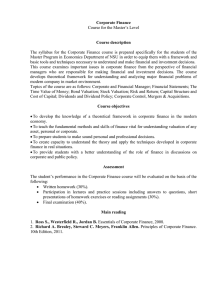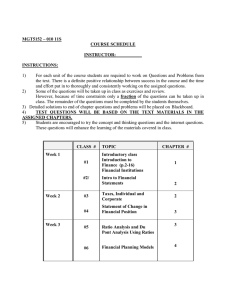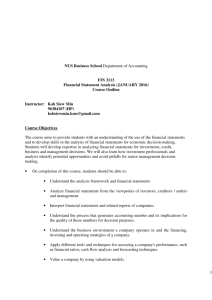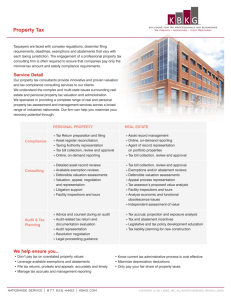Valuation methods for unlisted shares
advertisement
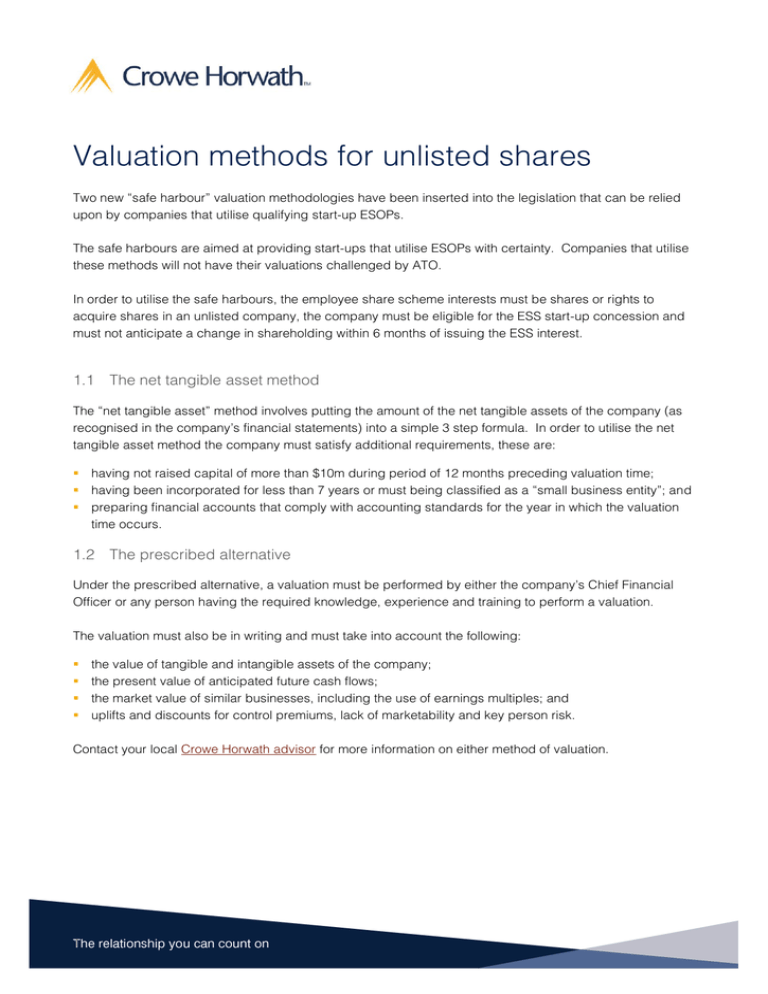
Valuation methods for unlisted shares Two new “safe harbour” valuation methodologies have been inserted into the legislation that can be relied upon by companies that utilise qualifying start-up ESOPs. The safe harbours are aimed at providing start-ups that utilise ESOPs with certainty. Companies that utilise these methods will not have their valuations challenged by ATO. In order to utilise the safe harbours, the employee share scheme interests must be shares or rights to acquire shares in an unlisted company, the company must be eligible for the ESS start-up concession and must not anticipate a change in shareholding within 6 months of issuing the ESS interest. 1.1 The net tangible asset method The “net tangible asset” method involves putting the amount of the net tangible assets of the company (as recognised in the company’s financial statements) into a simple 3 step formula. In order to utilise the net tangible asset method the company must satisfy additional requirements, these are: having not raised capital of more than $10m during period of 12 months preceding valuation time; having been incorporated for less than 7 years or must being classified as a “small business entity”; and preparing financial accounts that comply with accounting standards for the year in which the valuation time occurs. 1.2 The prescribed alternative Under the prescribed alternative, a valuation must be performed by either the company’s Chief Financial Officer or any person having the required knowledge, experience and training to perform a valuation. The valuation must also be in writing and must take into account the following: the value of tangible and intangible assets of the company; the present value of anticipated future cash flows; the market value of similar businesses, including the use of earnings multiples; and uplifts and discounts for control premiums, lack of marketability and key person risk. Contact your local Crowe Horwath advisor for more information on either method of valuation. 1
